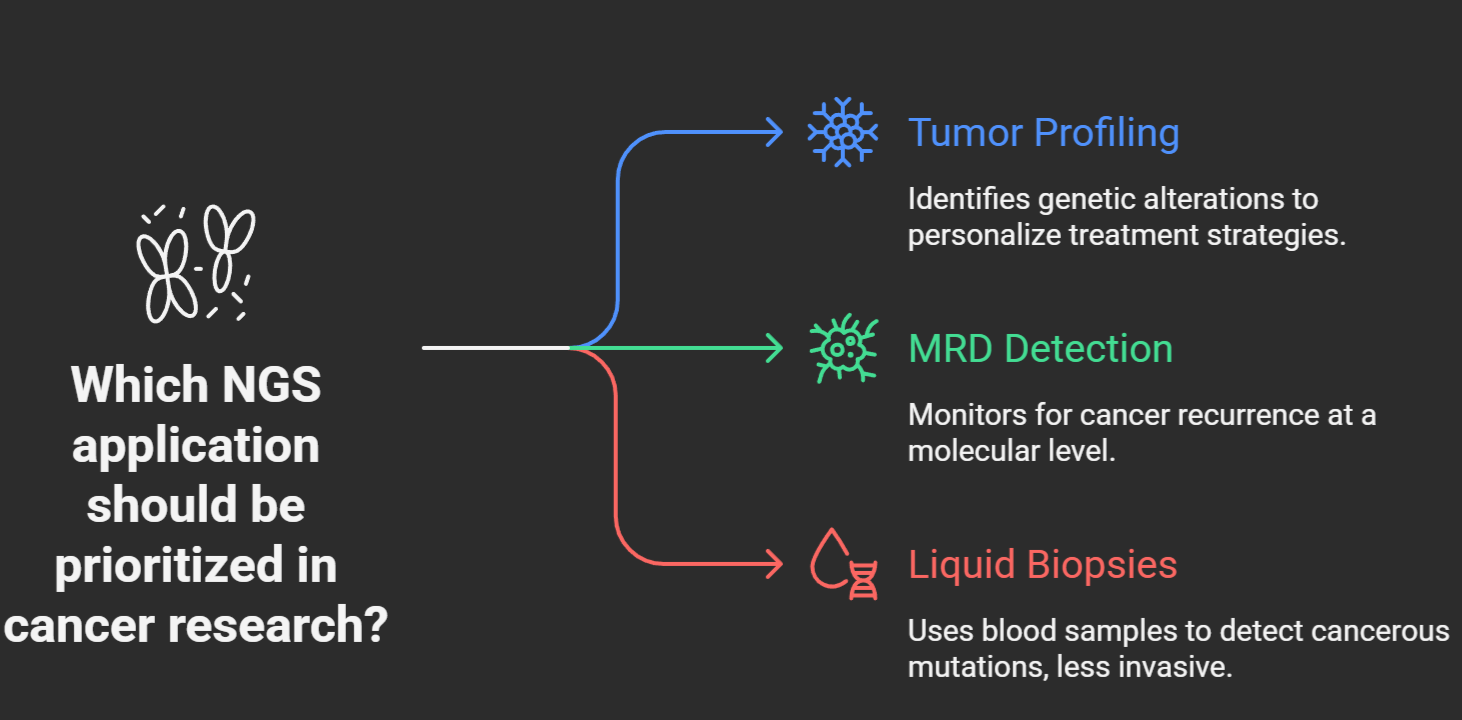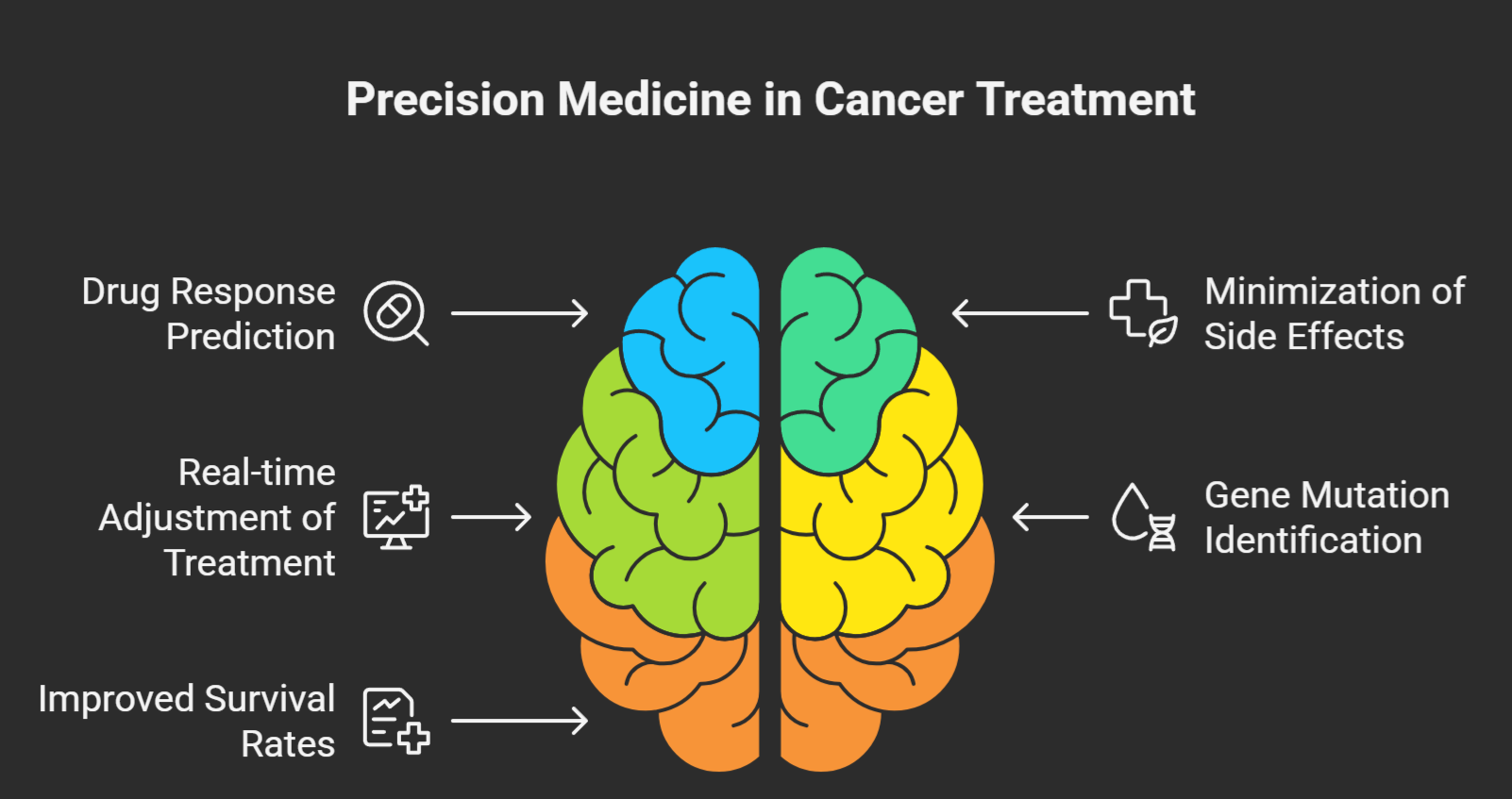A monumental shift in treatment paradigms is slowly dawning with the advent of NGS Technology. Historically, cancer diagnosis and treatment had relied primarily upon histopathology plus minimal genetic tests. In comparison, the recent advances in genomic sequencing provide a platform for birds-eye perspectives into all biological layers involved in cancer. We, at Uncoded by Premas Life Sciences, are aware of the possibility of transformation of NGS Technology, transforming the world of oncology and paving the way for next generation sequencing in cancer research.
Cancer research over the last 20 years has made significant strides in understanding how genetic mutations drive cancer. Nevertheless, finding the right treatment for the right patient at the right time is one of the major obstacles faced in oncology. NGS in Cancer does just that; it gives a comprehensive picture of the tumour’s genetic constitution and thus affords interventions with better precision and efficacy. The NGS Technology involves simultaneously sequencing large numbers of DNA and RNA at very high speed and customarily very deep coverage, thus enabling researchers and clinicians to catch mutations, trace tumour evolution, and develop targeted therapies.
The molecular analysis of cancer not only improves patient outcomes but also reshapes treatment algorithms. From early detection to monitoring responses to therapy, shortly NGS test for cancer is expected to be the backbone that will support personalized, effective, and equitable care in cancers.
Let’s take a look at how this game-changing technology is influencing the future of cancer treatment.
Understanding NGS Technology in Cancer Research
What is NGS Technology?
NGS Technology is a fast, high-throughput way of sequencing DNA and RNA. NGS, unlike traditional methods, can sequence entire genomes or targeted regions with an unmatched speed and depth.
How Does NGS Differ from Traditional Sequencing?
- Higher speed and efficiency: NGS is capable of sequencing millions of fragments simultaneously, while Sanger sequencing processes only one DNA fragment at a time.
- Comprehensive analysis: Detects mutations, gene fusions, and epigenetics all in a single test.
- Reducing costs: The price of sequencing has dropped sharply, making genomic testing much more realizable for clinical applications.
Application of NGS in Cancer Research
NGS applications in cancer and personalized medicine are vast. Some of the important applications are:
- Tumour Profiling: Identification of genetic alterations related to a patient’s cancer.
- Minimal Residual Disease (MRD) Detection: Monitoring for cancer recurrence at a molecular level.
- Liquid Biopsies: Finding cancerous mutations using blood samples instead of tissue biopsy.

The Impact of NGS on Cancer Genomics
Understanding the Genetic Terrain of Cancer
Cancer is driven by genetic mutations; however, these mutations vary widely across patients. Next generation sequencing for cancer treatment allows for advancing mapping of the genetic landscape of different types of cancers.
- Identification of Novel Cancer Biomarkers: Assisting researchers in the discovery of something like genetic signatures that are unique for specific cancers.
- Understanding Tumour Evolution: Reveals that cancers over time acquire resistance against treatments.
NGS in Early Detection of Cancer
Another shining aspect of NGS Technology for cancer is its role in early detection. Conventional imaging and biopsy methods typically fail to catch cancers very early. Therefore, NGS liquid biopsies allow one to sample tiny amounts of circulating tumour DNA from the bloodstream to facilitate early intervention.
Example: Lung Cancer Screening
A Nature Medicine report indicated that liquid biopsy utilizing NGS Technology detected lung cancer months ahead of imaging scans. This early detection increases the chances for successful treatment.
Advancing Targeted Therapies
Not all cancers respond to traditional chemotherapy. NGS Technology allows oncologists to identify targeted therapies following the genetic characterization of the tumours.
Example: BRCA Mutations in Breast Cancer
- Patients with BRCA1/2 mutations significantly benefit from PARP inhibitors, drugs targeting DNA repair pathways.
- It would have been an extra challenge without the advancement of NGS Technology to identify such patients.
Precision Medicine in Cancer Treatment
What is precision medicine?
Precision medicine in cancer treatment is an approach that tailors therapy based on a patient’s unique genetic makeup. Instead of a one-size-fits-all approach, precision medicine ensures that each patient receives the most effective treatment for their specific cancer.
The Role of NGS in Enabling Precision Oncology
- Drug Response Prediction: Identifying mutations that determine whether a patient will respond to a specific drug.
- Minimization of Side Effects: Avoidance of treatments that are unlikely to work reduces unnecessary toxicity.
- Real-time Adjustment of Treatment: Continuous genetic monitoring of tumour changes to alter treatment protocols.
Case Study: NGS and Its Application in the Treatment of Leukemia
A landmark study showed that children with acute lymphoblastic leukemia (ALL) who were treated with NGS modification had improved survival over those on standard protocols.
- Gene Mutation Identification: By looking for mutations in the IKZF1 gene, the researchers utilized NGS Technology to indicate a need for intensive therapy.
- Outcome: Patients treated based on their NGS results had 30% better chances of survival.

Challenges and Future of NGS in Oncology
Challenges of Widespread Adoption
While NGS Technology is changing the world of cancer treatment and giving hope to many patients, certain challenges are there to be addressed.
- Cost-Related Barriers: Even though the costs of sequencing have fallen, very high costs remain for the widespread adoption of NGS-based tests in routine clinical practice.
- Not Seen as Standard: NGS generates huge amounts of data, and therefore requires advanced bioinformatics tools and skilled personal
- Regulatory Approvals: The clinical validation of NGS-based tests is a lengthy and complicated process.
The Future of NGS Technology in Cancer Care
New Frontiers for NGS Technology in Oncology include:
- Integration with AI and Machine Learning: With AI-powered analytics mutation detection and treatment prediction can be done easily.
- Single-Cell Sequencing: It has the potential to allow a much deeper view into tumour heterogeneity and resistance mechanisms.
- Expanding Access: Initiatives to get NGS Technology to the underserved areas to democratize cancer access.
Final Thoughts:
Uncoded by Premas Life Sciences is proud to be the home of innovations in cancer genomics research. With such powerful technology, multi-omics approaches empower health providers to leap into the next era of precision medicine. Undoubtedly, NGS Technology is going to create a whole new way of diagnosing, predicting, and managing cancer in every part of the process stage. As we continue refining and developing these new technologies in the future, we hope that this will lead to even more effective and personalized cancer care that is easier to access. Certainly, NGS Technology is not just a tool for some very significant and branch-busting revolution in oncology, and we are proud to be part of it.
Frequently Asked Questions:
1. What is NGS Technology and how does it work?
NGS Technology is a high-throughput sequencing method that can analyze millions of DNA or RNA fragments simultaneously. It works by breaking down genetic material into smaller fragments, sequencing them, and then reassembling the data to provide a complete picture of genetic information.
2. How does NGS benefit cancer diagnosis and treatment?
It enables detailed profiling of tumours, helps identify genetic mutations, and allows doctors to recommend more precise and effective treatments. This leads to improved outcomes and a better understanding of how cancers evolve over time.
3. What role does NGS play in early detection of cancer?
NGS can detect minute traces of tumour DNA circulating in the blood, even before tumours are visible through imaging. This makes it possible to identify cancers earlier and intervene before the disease progresses.
4. How does Uncoded support cancer research in India?
By providing cutting-edge sequencing platforms and expertise, Uncoded empowers oncologists and researchers to study tumour genetics in greater detail. This support enables precision-driven therapies and improves the overall quality of cancer care.
